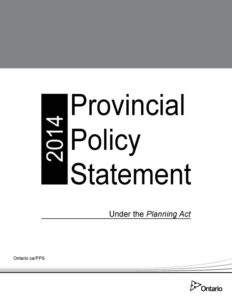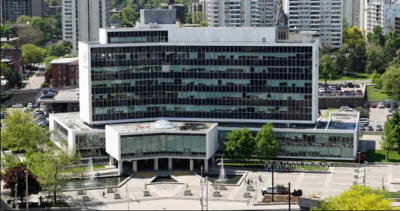October 4, 2019
BURLINGTON, ON
If you spend any of your time on the kind of development that is taking place in Burlington, you will have heard about this matter before.
Every development application includes material on how the application complies with PPS 2014 – Provincial Policy Statement.
The document is part of the Planning act which governs everything that gets done when it comes to developments.
The PPS gets updated from time to time. That time is upon us now.
In a recent media release the province announced that it is open for feedback and comment from the public.
Here is what the provincial government wants to change in the PPS.
 Increasing housing supply, supporting jobs and streamlining development approvals are top priorities for the government. The Action Plan includes a series of distinct but coordinated initiatives to address housing supply, including a review of the Provincial Policy Statement (PPS) – the foundation for land use planning in the province.
Increasing housing supply, supporting jobs and streamlining development approvals are top priorities for the government. The Action Plan includes a series of distinct but coordinated initiatives to address housing supply, including a review of the Provincial Policy Statement (PPS) – the foundation for land use planning in the province.
The government is consulting on proposed changes to the Provincial Policy Statement to support the government’s Housing Supply Action Plan and other land use planning related priorities.
About the Provincial Policy Statement
The Provincial Policy Statement is a consolidated statement of the government’s policies on land use planning and is issued under section 3 of the Planning Act. It applies province-wide and sets out the provincial policy direction for:
The efficient use and management of land and infrastructure
Ensuring the provision of sufficient housing to meet changing needs, including affordable housing
Protecting the environment and resources including farmland, natural resources (e.g., wetlands and woodlands) and water
Ensuring opportunities for economic development and job creation
Ensuring the appropriate transportation, water, sewer and other infrastructure is available to accommodate current and future needs
Protecting people, property and community resources by directing development away from natural or human-made hazards – such as flood prone areas
The PPS is the primary provincial land use policy document guiding municipal decision-making. The Planning Act requires that decisions on land use planning matters be “consistent with” the PPS
Municipalities are the primary implementers of the PPS through policies in their local official plans, zoning by-laws and other planning related decisions.
Proposed Policy Changes
The government is proposing policy changes to:
Encourage the development of an increased mix and supply of housing
Protect the environment and public safety
Reduce barriers and costs for development and provide greater predictability
Support rural, northern and Indigenous communities
Support the economy and job creation
1. Increasing Housing Supply and Mix
The proposed draft policies for consultation would:
Increase land supply requirements municipalities must meet:
Increase planning horizon from 20 to 25 years
Increase housing land supply from 10 to 12 years
Allow higher minimum requirement for serviced residential land (5 years) for upper- and single-tier municipalities
Update provincial guidance to support land budgeting (i.e. Projection Methodology)
Increase flexibility for municipalities related to the phasing of development and compact form
Add flexibility to the process for settlement area boundary expansions (e.g. allow minor adjustments subject to specific tests, highlight that study requirements should be proportionate to the size/scale of development)
Require transit-supportive development and prioritize intensification, including potential air rights development, in proximity to transit, including corridors and stations
Support the development of housing to meet current and future housing needs, and add reference to housing options
Support municipalities in achieving affordable housing targets by requiring alignment with Housing and Homelessness Plans
Broaden PPS policies to enhance support for development of long-term care homes
2. Protecting the Environment and Public Safety
The proposed draft policies for consultation would:
Enhance direction to prepare for impacts of a changing climate
Enhance storm water management policies to protect water and support climate resiliency
Promote the on-site local reuse of excess soil
Maintain current policies related to natural and human made hazards which directs development away from hazardous areas including flood-prone areas in order to protect public health and safety, while work by the Special Advisor on Flooding is underway
Maintain current policies that require municipalities in southern Ontario to identify natural heritage systems, and provide flexibility as to how to achieve this outcome
Maintain protections for the Greenbelt
3. Reducing Barriers and Costs
The proposed draft policies for consultation would:
Require municipalities to take action to fast-track development applications for certain proposals (e.g. housing)
Allow mineral aggregate operations to use rehabilitation plans to demonstrate that extraction will have no negative impacts
Align policies and definition of cultural heritage with recent changes to the Ontario Heritage Act
Refocus PPS energy policies to support a broad range of energy types and opportunities for increased energy supply
Direct large ground-mounted solar facilities away from prime agricultural and specialty crop areas
Make minor changes to streamline development approvals and support burden reduction
4. Supporting Rural, Northern and Indigenous Communities
The proposed draft policies for consultation would:
Allow flexibility for communities by clarifying perceived barriers to sewage and water servicing policies for lot creation and development in rural settlement areas
Enhance municipal engagement with Indigenous communities on land use planning to help inform decision-making, build relationships and address issues upfront in the approvals process
Enhance agricultural protections to support critical food production and the agricultural sector as a significant economic driver
5. Supporting Certainty and Economic Growth
The proposed draft policies for consultation would:
Encourage municipalities to facilitate conditions for economic investment, and at the time of official plan review or update, assess locally-identified employment areas to ensure designations are appropriate
Provide municipalities with greater control over employment area conversions to support the forms of development and job creation that suit the local context (current and future)
Provide stronger protection for major facilities such as manufacturing and industrial uses where non-employment uses are planned nearby (i.e. buffering uses from new sensitive uses).
Do the proposed policies effectively support goals related to increasing housing supply, creating and maintaining jobs, and red tape reduction while continuing to protect the environment, farmland, and public health and safety?
Do the proposed policies strike the right balance? Why or why not?
How do these policies take into consideration the views of Ontario communities?
Are there any other policy changes that are needed to support key priorities for housing, job creation, and streamlining of development approvals?
Are there other tools that are needed to help implement the proposed policies?
 Excerpted from CATCH (Citizens at City Hall), a citizen’s report on what takes place at Hamilton’s city hall
Excerpted from CATCH (Citizens at City Hall), a citizen’s report on what takes place at Hamilton’s city hall
Hamilton has submitted its concerns with the changes to the PPS – no word on what will come out of Burlington’s city hall.
Hamilton city staff are challenging yet another massive rewrite of planning rules by the provincial government. Planning staff oppose the province’s proposed elimination of policies to fight climate change and protect sensitive natural areas. They are also questioning “market based” changes that will make it easier for developers to pave over farmland and effectively shift planning approvals “from a municipal-led approach to a developer-led one.”
Municipalities are facing a major revision of the Provincial Policy Statement (PPS), the document which sets out the overriding rules that all land use planning in Ontario “must be consistent with”. The PPS directs policies on housing, infrastructure, transportation, economic development, aggregate extraction, land servicing arrangements and other municipal activities.
The province’s new rules on climate change are limited to preparing for its “potential” impacts. The Hamilton staff response going to councillors this week argues this “suggests uncertainty and does not acknowledge that impacts from climate change are already occurring”. Noting the city declaration of an emergency, they are even blunter about the provincial removal of all directions to prevent climate change.
“There are no policies within the document which speak to the importance of taking measures now to prevent or avoid climate change,” declares the staff report. “Seeing as the fight against climate change is a race against time, and actions need to be taken immediately to prevent irreversible impacts from climate change, it is an omission in the policies to not include direction to fight and prevent climate change at both the provincial and local levels through a variety of actions.”
The report also demands the province remove a new policy that “would allow mineral aggregate extraction to take place in certain natural heritage features where not previously permitted.” It further challenges wording changes that would base quarrying approvals on promises to rehabilitate in the future rather than the current requirement to review them “based on the ecological value and significance” of the affected landscape.
Other changes to the PPS centre development decisions on “market-based need” and “market demand”, terms which staff believe could “result in maintaining a market ‘status quo’ that is primarily based on a perceived desire for low density housing and will do nothing to encourage a shift to an urban form that is based on increased density.” The staff review notes that “market need and market demand are subjective terms” and asks who will define them and how that definition will be determined.
In numerous instances the word “shall” is being replaced by “should” in the PPS. Staff characterize this as policy being changed from “required” to “suggested” which gives developers more opportunity to overturn council decisions during appeals to the provincial planning tribunal.
Municipal comments on the PPS changes can be submitted until October 21.





















The critical issue here is not how to appease the NIMBY’s but how to solve the massive problem of housing affordability. This is one of the GTA’s biggest problems. The province is trying to help solve this problem and add new supply of housing, it’s quite simple. Saying we have already met our “development targets” is another way of saying “build somewhere else”. Someone has to build housing to house the 100,000+ new people that come to the GTA each year. Who is going to build it? If you hate developers so much then maybe you believe the city should be building it? Province? It is very easy to poke holes in any development plan, but how do you propose to build housing for all of these people?
Alfred – or can we call you Albert – where oh where did this come from? We have seen some very strange interpretations of Premier Ford’s motives but yours may, in fact, be amongst the strangest. And we note that you seem to have a peculiar affection for the term “nimby” – in this comment and most of your others. So, we would like to give you an alternate rendering – “Nasty Interpretations Make Burlingtonians Yawn”. And so they should and so they do.
Bill 108, the revisions to the Provincial Policy Statement (2014), Bill 5 (look it up), the regional governance review and a host of provincial downloading initiatives adopted over the past year have nothing to do with our somewhat outspoken mayor and everything to do with a government that is polemics (look it up) over policy, convenience over consultation/consensus and special interest over stewardship. Frankly, most citizens including ourselves, feel that responsible development is exactly what Burlington needs but strongly disagree that the current foray of condo towers and “signature buildings” proposed by those who don’t even reside in the “neighbourhood”, that will block our waterfront and choke our roads, is either responsible or in our collective best interests.
To suggest that any mayor “picked a fight” with Doug Ford and caused this is frankly laughable. Ford was on this path from day 1 – in fact prior to his election win he tried to give over the greenbelt to developers until the public found out and he risked losing the election so he temporarily backtracked. Look beyond Burlington at the big picture and stop blaming individual Burlington citizens who are simply trying to protect our waterfront asset and get off your odd obsession that MMW is to blame for the province’s seemingly continuous gifts to developers. On that note, take a look at how much development funding went to the election campaigns through donations and through third party advertisers for Ford (as well as some of our own pro-development municipal candidates). In Burlington, it mostly didn’t work, thanks to the voters who saw through it. Unfortunately, we couldn’t stop it everywhere else.
In terms of approvals for Burlington there are 3 issues…
In this city there is little mixed use development ..only high rise buildings unsuitable for children and not affordable.
Infrastructure is being ignored in terms of traffic and safety…
We have already met our targets for development
We recognize change but only change for the betterment of citizens not corporate pocket lining that our provincial government is only too willing to support.
“….gives developers more opportunity to overturn council decisions…” is not what “For the People” brings to mind but it’s not a surprise either.
Yes, the Ford team mis-spells “the”. … they mean to say “our”